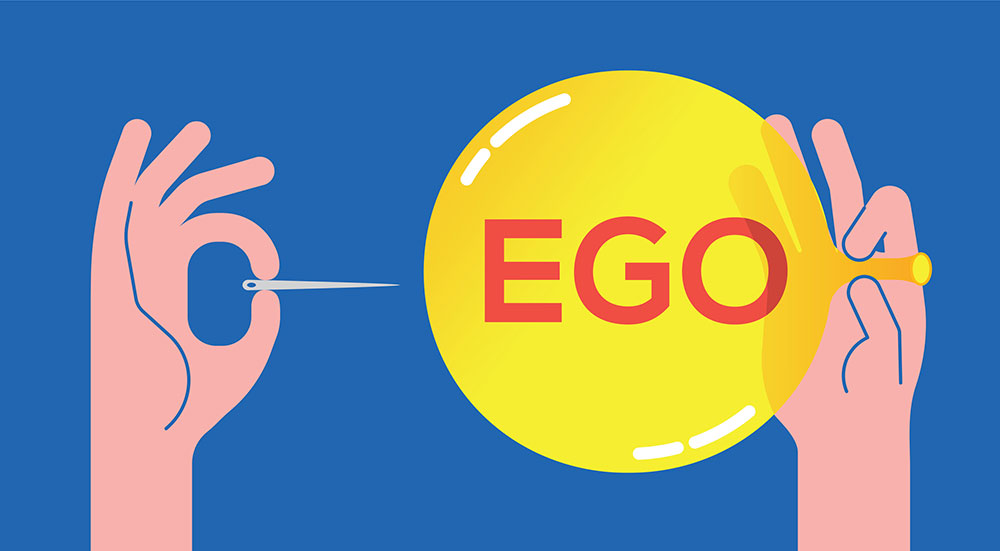
To cover up feelings of inadequacy, feelings of worthlessness, and shame, people with NPD construct a False Self. It’s like a Superman (or Superwoman) mask that covers up everything shameful that needs to remain hidden, out of sight.
WHAT COSTUME?
The most important thing to remember is that once a narcissist puts on the costume, to varying degrees they eventually forget they put it on. They think they are Superman. This is why they are so shallow. They can’t dig deep or they will find they’re living on a garbage dump.
WHAT, ME CHANGE?
This is one reason why it is so hard to change people with NPD. Being Superman and pushing all their feelings of “badness” onto “targets of blame” works well as a defense mechanism.
I AM NEVER WRONG
Not only that, Superman is too superior to have to take accountability, is never wrong, and never needs to apologize. True intimacy with a narcissist is impossible because they have so little self-awareness, no empathy, and they don’t really care about anyone except themselves.
HEADS I WIN, TAILS YOU LOSE
They don’t know what intimacy is, either. They see relationships as transactional things in which one person gets to win and the other has to lose. This is one reason why marriage therapy doesn’t work. They play to win, not improve the relationship or solve problems.

Folks with NPD run on narcissistic supply (NS) like the Starship Enterprise runs on dilithium or cars are fueled by gas. NS is essential to keep the False Self inflated and strong. Because narcissists can provide no self-esteem of their own, they require it from others.
Examples of narcissistic supply include admiration, praise, attention, being envied, having an impressive title, owning expensive things, special treatment, adulation, being feared, approval, affirmation, respect, applause, celebrity status, sexual conquest, notoriety, or any other means of being viewed as the “top dog.”

When narcissistic supply stops for some reason, or the person with NPD feels blamed or criticized, the result is a narcissistic injury. An injury can be small, like someone important declining an invitation to dinner, or large, like being edged out as the CEO of a Fortune 500 company or losing an election. Their mind may not be able to accept it. Some may go into therapy–usually until the crisis passes.
Gigantic or tiny, narcissistic injuries create tears in their costume, and suddenly their deeply hidden vulnerability, shame, and inadequacy threaten to burst through. This is their cue to rev up denial, projection, and rationalization and put it in overdrive. The next step is to find a “target of blame” (or two or three) and point fingers at them so the narcissist can act like a victim and get sympathy and more narcissistic supply to mend the tears on their costume.

Divorce can be a major narcissistic injury, which is why so many narcissists act like bullies in court, taking revenge on their soon-to-be-ex spouse and putting children in the middle. That’s true even if they’re the one initiating it. That’s why getting the book Splitting: Protecting Yourself When Divorcing a Borderline or Narcissist is so important. You may need a year to plan and prepare. See the divorce section for more information. It may make the difference between having custody of your children or being alienated from them.
Vengeful, angry, narcissists have been known to put every good attorney on retainer, making them unavailable for their spouse. They may fight for custody even if they don’t want the children, just so their spouse can’t have them. They may also try to turn the children against the non-disordered spouse. If you leave the house, they may say you abandoned the children. Get the book, especially if your spouse has ever threatened you with divorce or taking the children. You have no time to waste. Hope for the best, but prepare for the worst.
Narcissistic rage is a common response to a narcissistic injury. What distinguishes narcissistic rage from normal anger is that it is unreasonable, usually out of proportion to the event, and intensely aggressive or passive aggressive. Aggression may include loud, intense outbursts of anger to simmering resentment, the silent treatment, or cutting sarcasm.

“Randi literally saves people’s lives. To those of us who’ve read her stuff and found out that we’re not crazy and there’s a name for this disorder, she is a guiding star, a light in the darkness, and a voice crying out in the wilderness.”
–A reader
